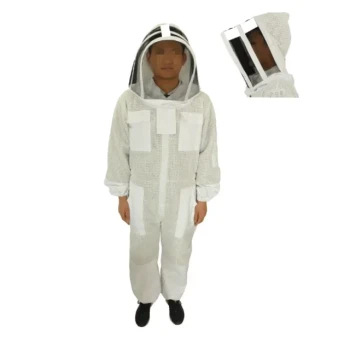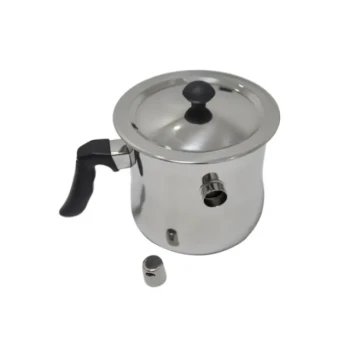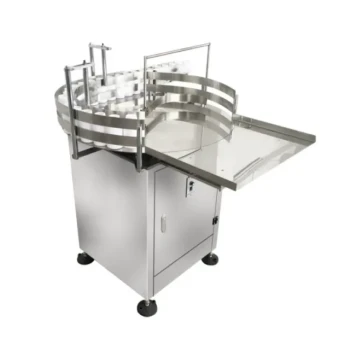At its core, responsible beekeeping is about stewardship. For a new beekeeper, this means starting at a manageable scale to protect your investment and, most importantly, ensure the health and well-being of your honey bee colonies. It is the foundational practice that separates a successful apiarist from one who experiences failure and frustration.
The central challenge for a new beekeeper isn't just learning what to do, but understanding why. Responsible beekeeping is a mindset focused on proactive management, hive health, and continuous learning, rather than a reactive response to problems.
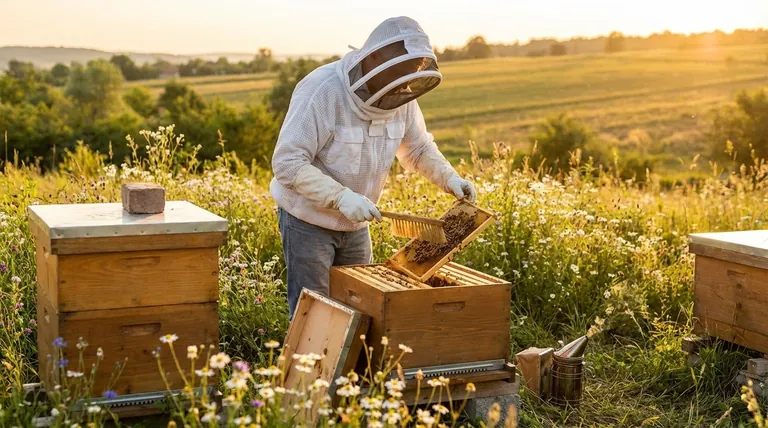
The Pillars of Responsible Management
The term "responsible beekeeping" encompasses a set of principles designed to ensure the success of both the beekeeper and the bees. It is a proactive approach built on knowledge, preparation, and respect for the colony.
Starting at a Manageable Scale
Many new beekeepers, driven by enthusiasm, make the mistake of starting with too many hives. This quickly leads to being overwhelmed.
A smaller number of hives, typically one or two, allows you to learn the seasonal rhythms and signs of colony health without being stretched too thin. This focus protects your financial investment and prevents manageable issues from becoming catastrophic failures across multiple colonies.
Prioritizing Hive Health and Welfare
Your primary responsibility is to the well-being of your bees. Healthy bees are productive, resilient, and less likely to cause issues for neighboring hives.
This involves regular inspections to monitor for pests like Varroa mites, signs of disease, and adequate food stores. Responsible management means intervening when necessary with appropriate treatments or feeding.
Investing in Essential Equipment
Proper equipment is not a luxury; it is a prerequisite for effective and safe beekeeping. The most critical piece of equipment is a full beekeeping suit.
A quality suit protects you from stings, which is crucial for building confidence. When you are not worried about being stung, you can perform slower, more thorough hive inspections, allowing you to work calmly and observe the colony without rushing.
Practical Techniques for New Beekeepers
Beyond principles, responsible beekeeping involves adopting specific techniques that make hive management more efficient and effective. These practices save time, reduce stress, and lead to better outcomes.
The Purpose of Hive Inspections
Hive inspections are your main tool for data collection. This is how you confirm the presence and health of your queen, assess brood patterns, and check for signs of swarming.
Without the protection of a good suit, beekeepers often avoid or rush through inspections. This neglect is a primary cause of colony loss, as critical problems go unnoticed until it is too late.
The Value of Queen Marking
For a new beekeeper, finding the single queen among tens of thousands of bees can be a daunting task. Queen marking is the simple practice of placing a small, colored dot on her thorax.
This makes her instantly identifiable during an inspection, saving a significant amount of time and reducing disruption to the hive. It also helps you quickly confirm if your colony is queen-right or if a swarm has occurred and the original queen has left.
Understanding the Trade-offs and Common Pitfalls
Every new endeavor has potential pitfalls. In beekeeping, these often stem from a misunderstanding of the commitment required.
The Risk of Rapid Expansion
The desire to grow your apiary quickly is a common but dangerous impulse. The trade-off for rapid expansion is often a decline in the quality of care.
A single, well-managed hive is a far greater asset than five neglected ones. Focus on mastering the fundamentals with one or two colonies before considering adding more.
The Cost of Inadequate Protection
Investing in a high-quality beekeeping suit may seem expensive initially, but it is a critical investment in your success and safety.
A cheap or incomplete suit that results in painful stings can create fear and anxiety around hive inspections. This reluctance to manage the bees is a direct path to colony failure. A good suit allows you to be a calm, confident, and therefore effective, beekeeper.
Making the Right Choice for Your Goals
Your approach should align with your primary objective as a new beekeeper. Understanding your goal helps clarify where to focus your energy and resources.
- If your primary focus is ensuring bee survival: Start with only one or two hives and dedicate yourself to mastering weekly hive inspections.
- If your primary focus is protecting your financial investment: Prioritize buying high-quality protective gear and hive components to prevent costly failures and replacements.
- If your primary focus is long-term enjoyment and success: Adopt simple techniques like queen marking early on to reduce stress and make hive management more efficient.
Ultimately, beekeeping is a partnership, and responsibility is the foundation of that relationship.
Summary Table:
| Principle | Key Action | Benefit for New Beekeeper |
|---|---|---|
| Manageable Scale | Start with 1-2 hives | Prevents overwhelm, protects investment |
| Hive Health Priority | Regular inspections for pests/disease | Ensures colony survival and productivity |
| Essential Equipment | Invest in a full beekeeping suit | Enables safe, calm, and thorough inspections |
| Proactive Techniques | Practice queen marking | Saves time, reduces hive disruption |
Equip yourself for responsible beekeeping success. Starting your apiary on the right foot requires reliable, high-quality equipment. HONESTBEE supplies commercial apiaries and distributors with the durable beekeeping supplies and protective gear needed for effective, confident hive management. Contact our wholesale experts today to discuss your apiary's needs.
Visual Guide
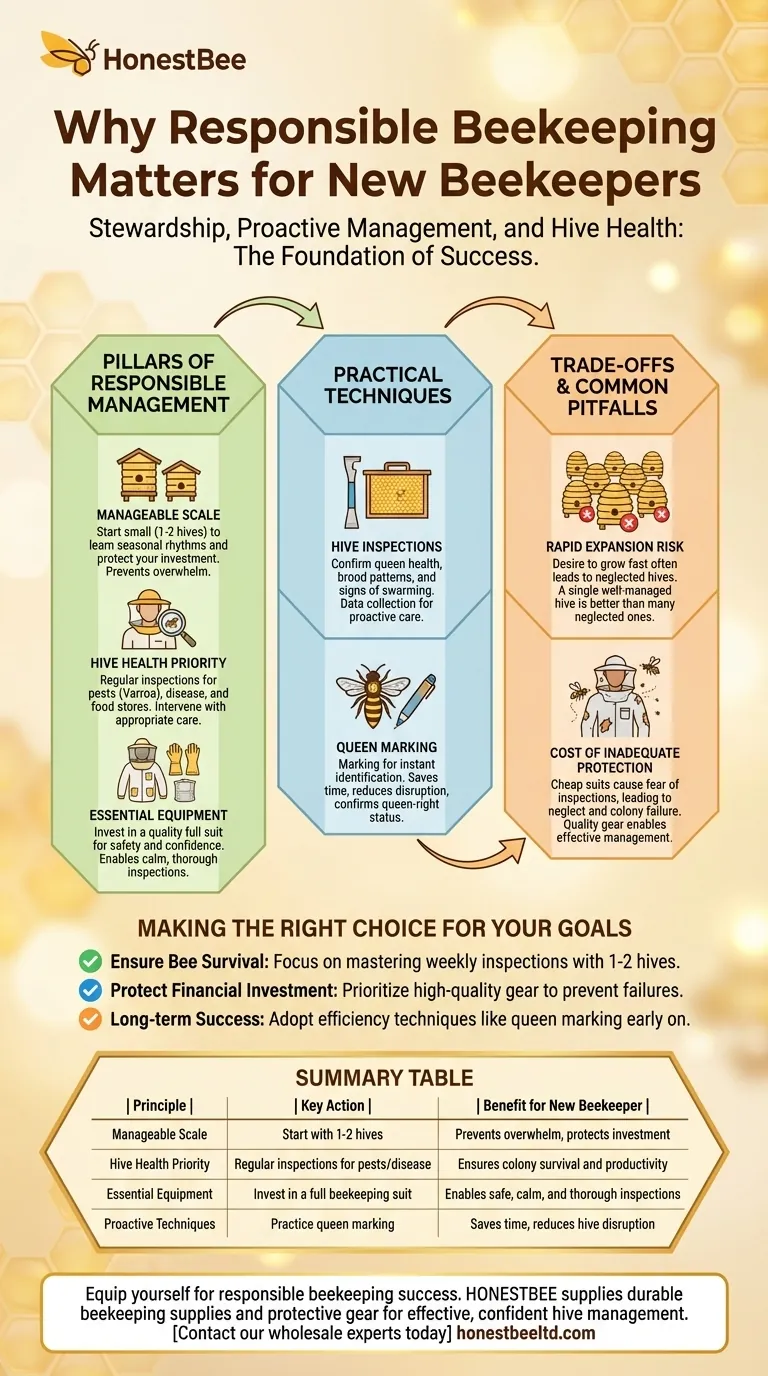
Related Products
- Vented Beekeeping Jacket with Hood and Veil for Beekeepers
- Three-Layer Ventilated Beekeeper Suit with Structured Fencing Veil
- Professional Stainless Steel J-Hook Hive Tool
- Long Langstroth Style Horizontal Top Bar Hive for Wholesale
- Heavy-Duty T-Style Frame Perch
People Also Ask
- Who might prefer using a bee jacket? Optimize Your Apiary with Mobility and Comfort
- Why is professional-grade beekeeping protective clothing essential? Ensure Safety with Defensive Bee Subspecies
- What are the advantages of using a beekeeping jacket? Enhance Comfort and Efficiency in the Apiary
- How does a ventilated suit balance sting protection and comfort? The Science of Cool, Safe Beekeeping
- Is it necessary to wear gloves with a bee suit? Essential Safety Guide for Beginners & Pros

